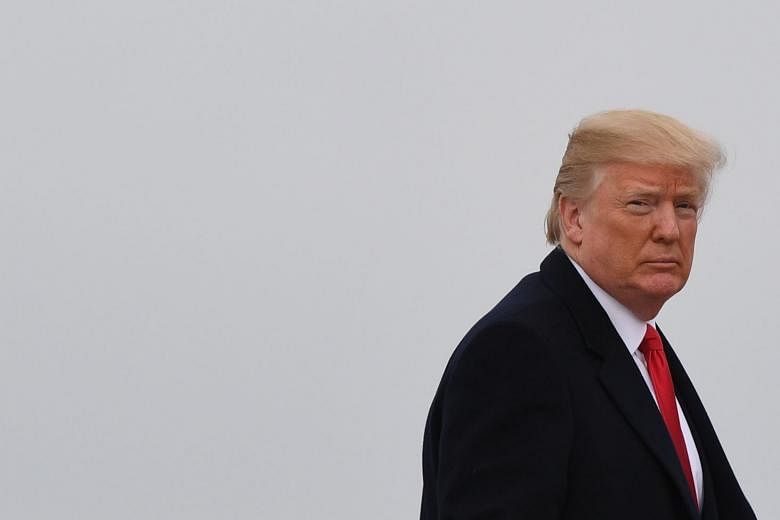SINGAPORE -Countries are calculating that they cannot count on the Trump administration's America to keep its word and its international commitments, three visiting foreign policy professors said on Thursday (Jan 11).
They were highly critical of what they saw as unpredictable and impulsive foreign policy since Mr Donald Trump took power.
This has caused countries to lean towards relying more on themselves, or to get closer to China, they told a dialogue titled The Trump administration and US foreign policy: A first-year report card.
No major international institution has actually ruptured nor a trade war broken out, but the harm done is more subtle, they said at the event organised by the S Rajaratnam School of International Studies.
The foreign policy experts highlighted Mr Trump's threats to pull out of the North Atlantic Treaty Organisation (Nato), which obliges members to come to each other's defence if anyone is attacked.
International affairs professor Michael E. Brown of the George Washington University said: "The thing that cannot be undone is that we have elected a president who cannot be counted to follow through on these sacred, solemn, strategic commitments."
Johns Hopkins School of Advanced International Studies dean Vali Nasr said that once countries around the world sense that the United States is not completely committed, countries will begin to follow Japan Prime Minister Shinzo Abe's path.
Mr Abe wants to amend Japan's pacifist Constitution to loosen constraints on the military, due to security threats from North Korea.
"He's not going to rearm Japan overnight. But the train that was already starting to leave the station accelerated under Trump because Japan no longer trusts that America is going to stand up to North Korea...or be in Asia," he added.
Professor Brown noted how Mr Trump's zero-sum view of the world and preference for bilateral ties over multilateral institutions were at sharp odds with Europe.
This has created a sense in Europe that it "cannot count on Trump to live up to pledges the US has made over the years", he said.
He cited how German chancellor Angela Merkel said that Europe must take its fate into its own hands.
In Asia, countries that want America in the region as a counterbalance to China are now hedging their bets, said Macquarie University security studies professor Bates Gill.
He cited how Australia in its foreign policy government report released last November said it needs to do more to find other partners and rely so much on an increasingly unpredictable US.
All three were deeply sceptical of Mr Trump, even as a number of analysts have said the American leader had not significantly disrupted the regional order in Asia.
Mr Trump's marathon visit to China, Japan, the Philippines, South Korea and Vietnam last year has been cited as a sign that America remains committed to the region.
Dialogue moderator and veteran diplomat Ong Keng Yong also pointed out the American stock market is doing well despite Mr Trump's pronouncements on free trade.
Professor Nasr said Wall Street was happy with the tax reforms pushed through by Mr Trump which favour the wealthy.
"If you set the bar that if the entire economy and world order hasn't collapsed therefore he has succeeded, then he has," said Professor Nasr.
"But he has created enough disturbance and change in the international order, the results of which will have ramifications down the road. Trust matters a lot."


